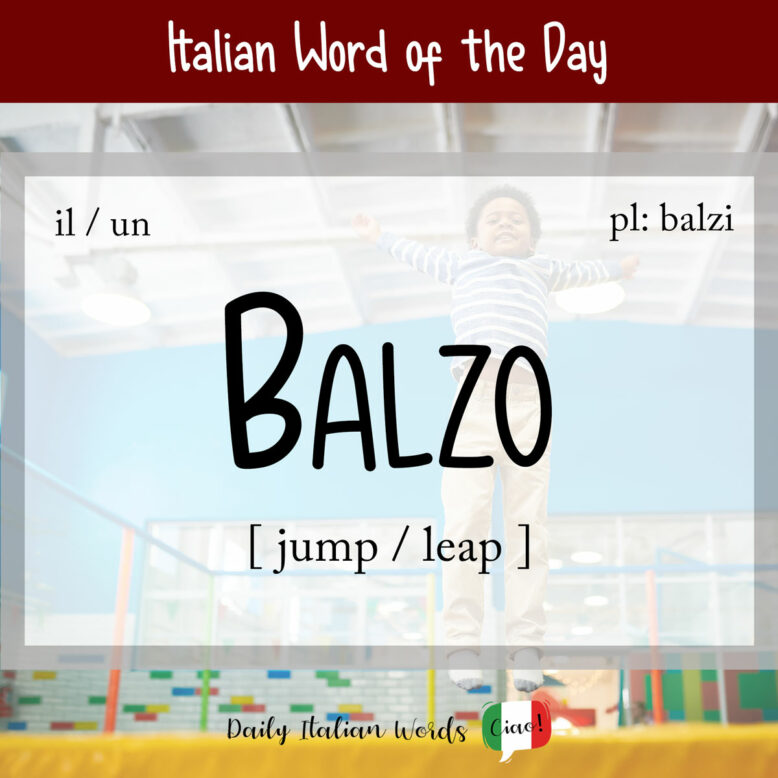The Italian word balzo (masculine, plural: balzi) refers to the sudden movement of an object (usually a ball or something elastic) after it rebounds off the ground or any hard surface. Possible translations in English include bounce, leap, spring, and jump. It derives from the verb balzare meaning to bounce.

The expression fare un balzo (literally ‘to make a bounce’) means the same thing as the verb balzare.

You might see balzo appear in the following set adverbial phrases:
- d’un balzo = with a leap
- con un balzo = with a leap
Con un grande balzo, il lupo si lanciò verso Cappuccetto Rosso.
With a great leap, the wolf lunged toward Little Red Riding Hood.
Balzo can also be used figuratively to refer to a sudden abrupt change or a sudden increase in something. For example:
- un balzo in avanti per la società = a leap forward / a stride forward for the society
- un balzo del prezzo = a jump in price
The idiomatic expressions aspettare la palla al balzo (literally: to wait for the ball to bounce) and cogliere / prendere la palla al balzo (literally: to grab the bouncing ball) mean to wait for the opportune moment and to seize an opportunity respectively.
Two related terms are:
- rimbalzo = more or less the same meaning as balzo
- sbalzo = jolt, jerk, jump, sudden change
Domani è previsto uno sbalzo di temperatura.
Tomorrow a jump in temperature is expected.
Important: Balzo shouldn’t be confused with the feminine balza which translates as cliff, ledge or flounce (of a dress).
Heather Broster is a graduate with honours in linguistics from the University of Western Ontario. She is an aspiring polyglot, proficient in English and Italian, as well as Japanese, Welsh, and French to varying degrees of fluency. Originally from Toronto, Heather has resided in various countries, notably Italy for a period of six years. Her primary focus lies in the fields of language acquisition, education, and bilingual instruction.


